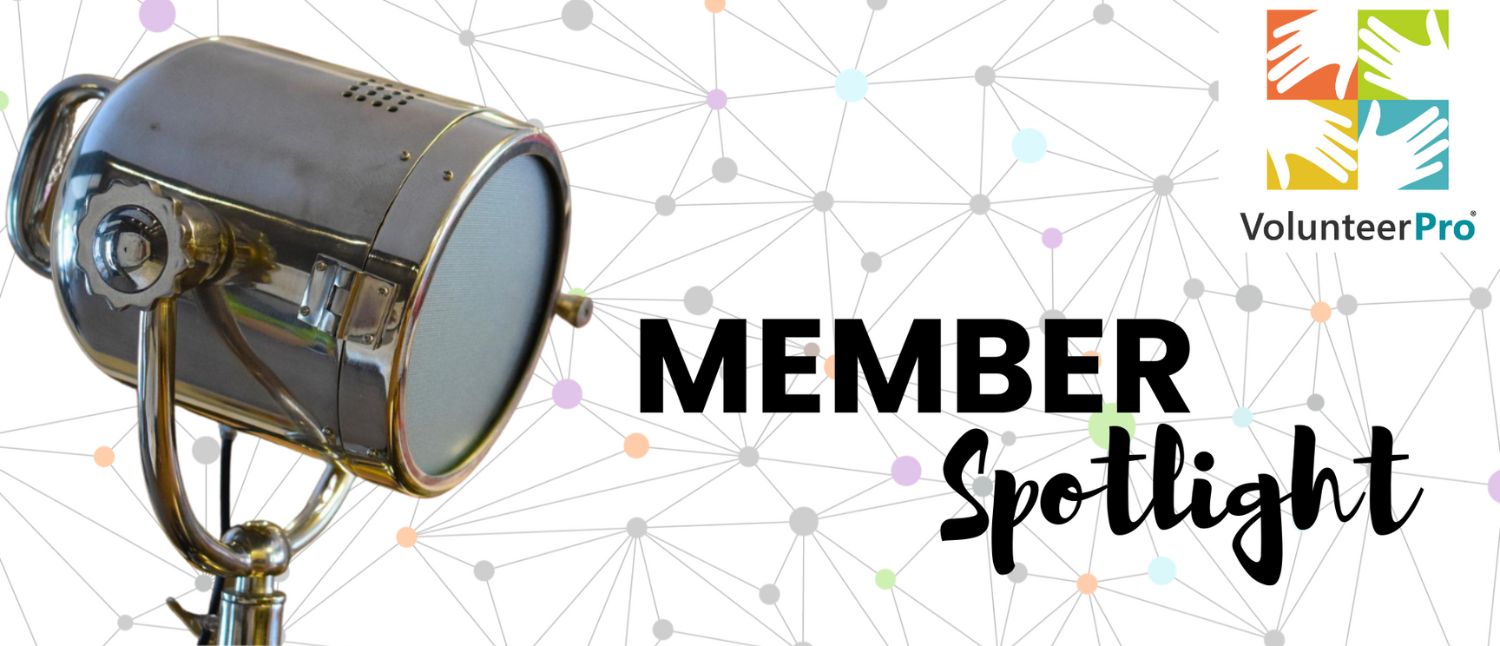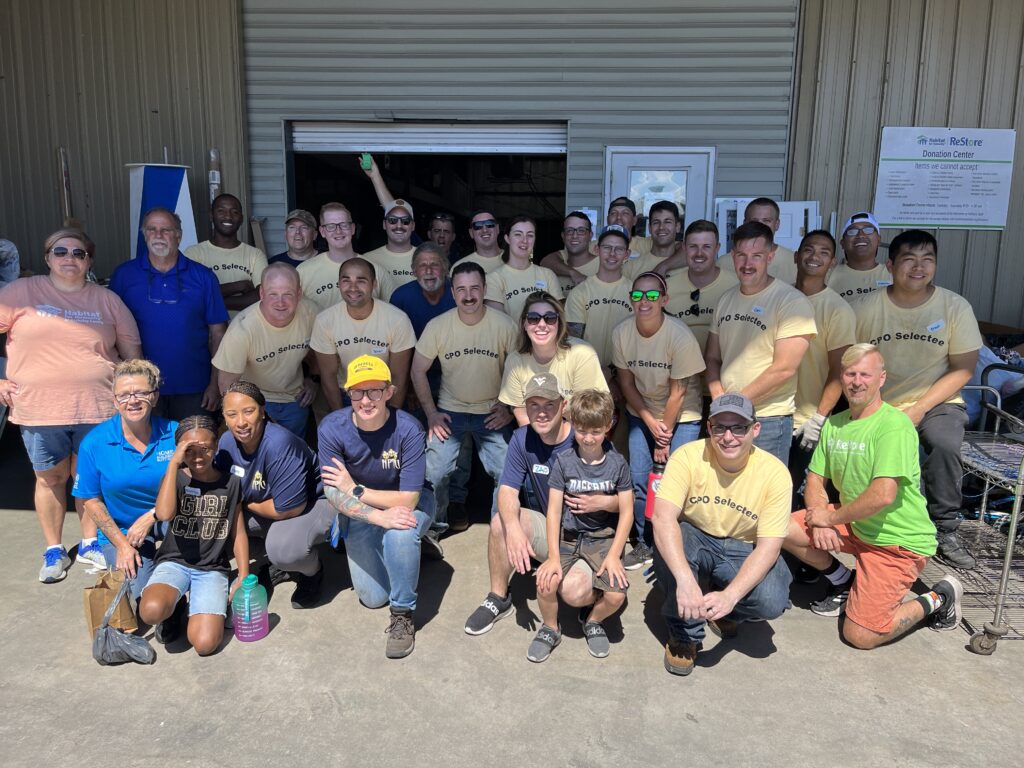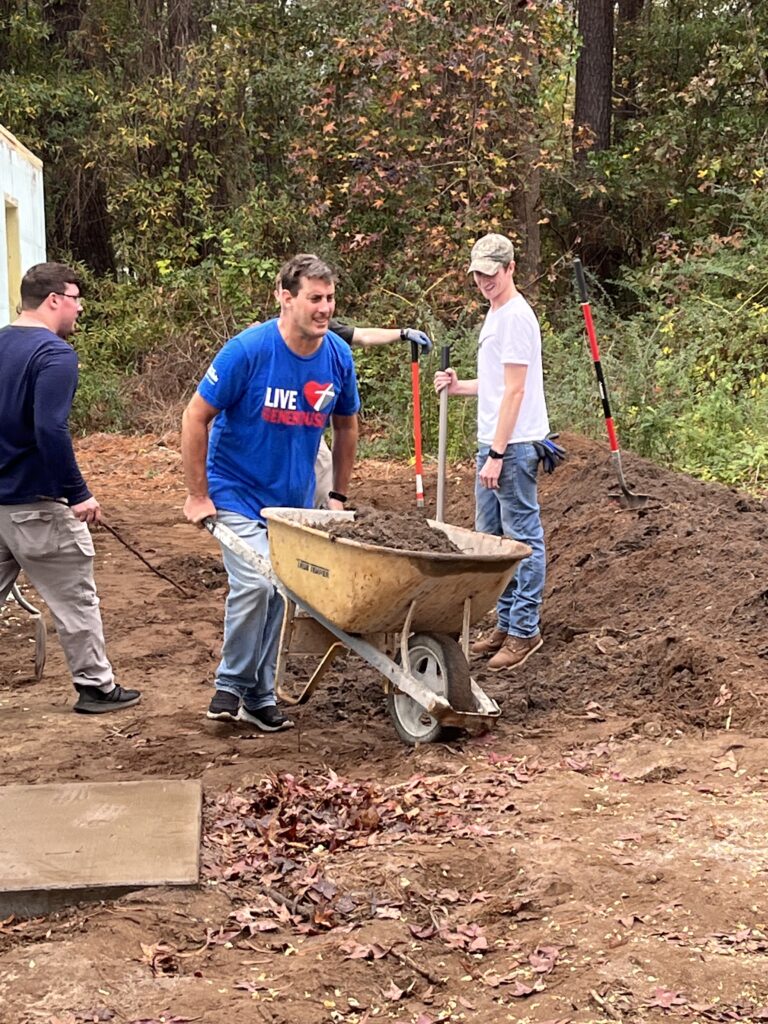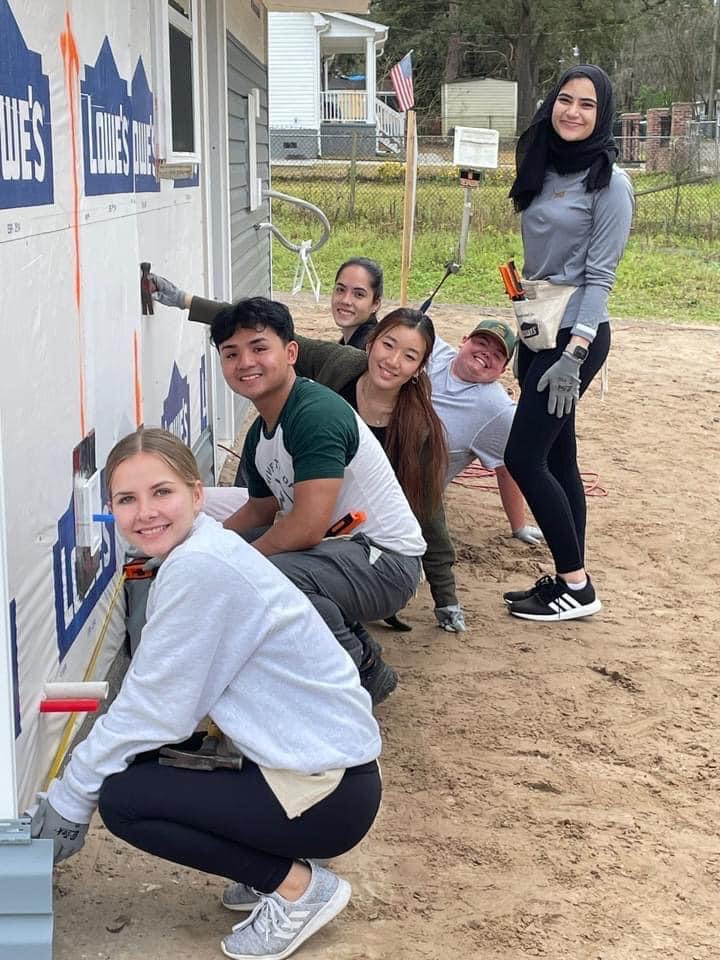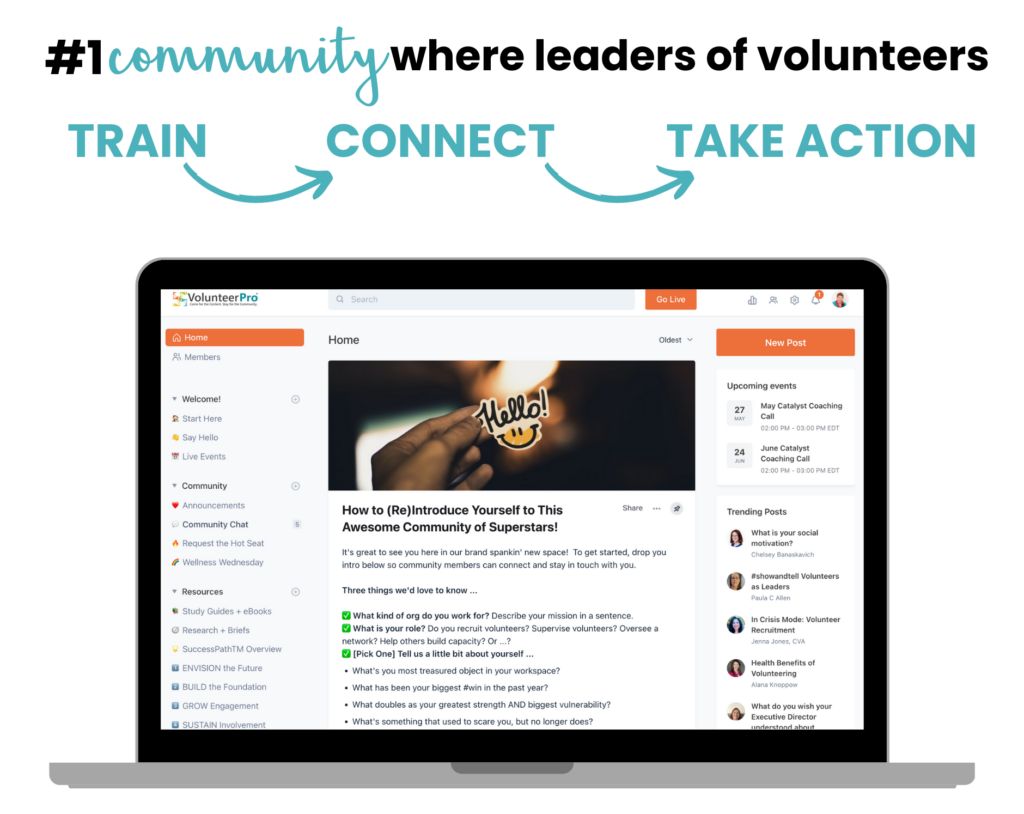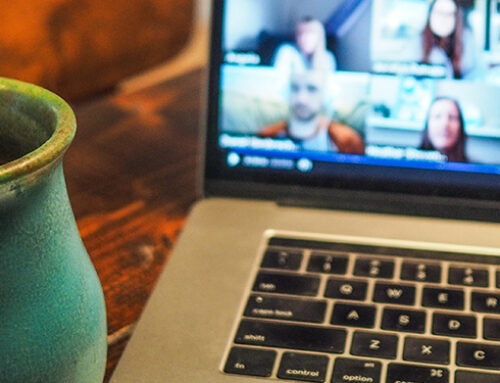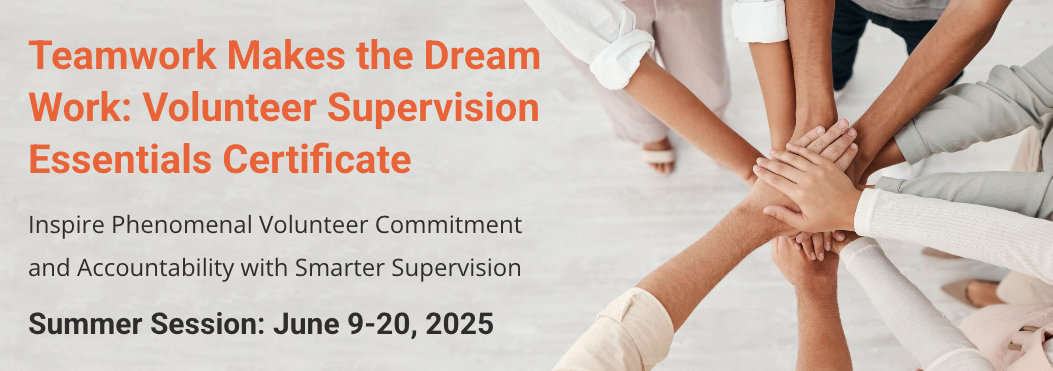Member Spotlight: Sweat Equity & Service Learning
When thinking about college spring break, a beach party might be the first thing that comes to mind. However, for college and university students across the country that have partnered with (HFHI) Habitat for Humanity International, those scholars are thinking about an alternative spring break, a “Sweat Break” if you will.
In this month’s VolunteerPro Member Spotlight, April Elswick at Habitat for Humanity of Berkeley County explains how students are spending their free time giving a hand up to communities in need.
Chelsey: Welcome April! I am familiar with Habitat for Humanity, but please tell me a little bit about your organization.
April: I am with Habitat for Humanity of Berkeley County. We are based out of Goose Creek, South Carolina. In the Charleston/Lowcountry area, there are actually five Habitat for Humanity affiliates. I am the Volunteer Coordinator for Berkeley County, which is the largest county in our area.
I do a little bit of everything. We have a small team, so we all wear multiple hats as most non-profits do. Recently, I have been learning the procurement side of construction to help our new construction manager and construction supervisor as well. That’s been educational as far as actually seeing what all goes on beyond getting the volunteers to the site.
Volunteers have many roles, one of them being on the construction site. Our goal is to have volunteers building affordable homes, three days a week. Volunteers also serve in the Habitat ReStore which is a retail store that is primarily donations from the community, resold to the community to build homes for the community. Volunteers also help with events, outreach, and fundraising.
Chelsey: Nice! How many homes do you build in your county each year?
April: Typically, our goal is four to five homes a year. Of course, we are still regrouping from COVID so for the past few years, we have been finishing up building homes for families that were already in the Habitat program.
We’re trying to get back to that goal because our county has a lot of needs, with affordable housing being one of them.
Chelsey: Tell me a little bit about how someone would qualify for your program. You talked about sweat equity there, how does that all work?
April: A popular question you get when you say you work for Habitat for Humanity is, “How do I get a free house?”
It’s not a free house. Habitat is a hand up, not a handout. Basically, you are working to get an affordable mortgage; you’re still going to pay for your home, but it’s going to be low interest, and a manageable mortgage.
For a long time, we were 0% interest. That’s no longer sustainable in the market that we’re in now, but we are still low interest. You’re talking about a mortgage with approximately 1% interest.
One of the homes that we built this past year was a four-bedroom, two-bathroom house with vinyl siding, for a family of five, at approximately $600 a month mortgage. That’s including escrow, which is your taxes and insurance. Basically, the mortgage for the home that we build for you must be less than 30% of your income.
April: We are currently working on our first ICF (Insulated Concrete Forms) Nudura home. It’s even more sustainable and volunteer-friendly because it’s basically framed with blocks like Legos. The foam blocks pop open and are reinforced with rebar.
We had our very first pour day for our walls recently, and with 18 yards of concrete, it makes the house a fortified building. It is hurricane-proof, bullet-proof, and very quiet on the inside.
It’s a new process for us, but an exciting process. We have the opportunity to team up with Nudura, Tremco, Carolinas National Concrete Association, CMP Pumping, and Knight’s Redi Mix. That made this home possible.
Chelsey: It’s cool to see the community coming together and thinking about new ways to produce affordable homes for people!
April: It all started because during COVID and shortly after, there were supply issues. You couldn’t get lumber. If you did get lumber, you waited a long time for it.
Chelsey: Wow! And I bet the pricing has probably gone up as well.
April: We’re very lucky. We have a really good partnership with Lowe’s across the country, and that’s very valuable. We started looking into alternative ways when lumber was on shortage and lumber prices were going astronomical.
The Nudura system is more sustainable and it’s more volunteer-friendly, so we don’t have to pay sub-labor to do the framing. We can actually frame the house with our volunteers like we do the rest of the house. That saves labor and other costs, plus they’re actually getting a more durable, more energy-efficient home.
Chelsey: That would be really cool! What are some of the challenges that you have in your program right now that your program’s facing?
April: The biggest thing is volunteers coming in on a regular basis. On the construction side of things, we’ll have groups come out, but the issue is getting them to come out on a consistent basis.
Our other struggle is skilled volunteers that can actually commit to somewhat regular time with us. Skilled volunteers aren’t a necessity, but they are a blessing on some tasks. On the ReStore side, we get groups that come in, which are great. We have a handful of regular weekly volunteers as well. We just need more of them.
We also do a Collegiate Challenge in the spring with HFHI and get some awesome colleges that come in. We’re very lucky that we get lots of volunteers that are passionate about what we do. It’s just consistently having those people all the time.
Curious about how to find partners for your next “Days of Service” project? Check out this post HERE>>
Chelsey: Tell me a little bit more about that collegiate challenge.
April: Sure! On the Habitat for Humanity International (HFHI) level, they do what they call Collegiate Challenge. During spring break, campus chapters around the country will go to different Habitats around the country and spend their spring break basically sweating and doing the work for Habitat on construction sites and in their ReStores.
What we call it here is “Sweat Break.” The students come and sweat with us for a week. College students each contribute a $225 donation to Habitat for Humanity Berkeley County. For the week, we house them in different churches and organizations that partner with us in the community. That way they don’t have to worry about the expense of housing or a hotel.
The teams will get to have lunch with our CEO, other key staff, and volunteers. We just break bread together, answer questions and they get some behind-the-scenes insight on what a nonprofit looks like, what working for a nonprofit is like, get some life-in-general advice, and more.
The students get excited about what we’re doing. We try to make sure they get to meet the homeowners that they’re building for and at least have lunch with them one day while they’re here. They work in our ReStore one day as well doing clean-up work, organization, room settings, and things like that.
They pay to come sweat with us for a week, get their hands dirty, and just give back to a community that they have no ties to. It’s amazing!
Teams did a lot of work on the two houses we did last March. Both houses were completely prepped and sided by college students. We say “One week can change a life, maybe even yours!” We get just as much out of this experience as they do, and more. We’re not just building houses.
Chelsey: I love this example of service learning! Are you able to stay in touch and keep the college teams updated on the progress of the houses?
April: We built a house in Hanahan, South Carolina this past year. We had two different colleges that worked on their home.
We just did their home dedication about two months ago. Their very first piece of mail in their brand-new mailbox at their brand-new home was from one of the colleges that worked on their home. It was a card signed by all of them welcoming the family home.
Those students took up a collection and sent a gift card to them to buy some things for their home. That was their very first piece of mail. The mother and her three girls love to bake, so they purchased a mixer that’s in their new kitchen with the funding from those college students.
Chelsey: Oh, that is so sweet. It’s like a full-circle moment.
For more on how to plan for community service projects, check out our Complete Guide for Nonprofits HERE>>
Chelsey: I wish this opportunity existed when I was in college! What do you love most about your job?
April: The people! And every day is a little bit different. We are working on Habitat Christmas now, which is a full month of activities and treats for our volunteers and staff. Just fun little things just to be interactive each day.
Doing something each day lets everyone get involved. We are appreciating the people and all the things that they do for us and the community. You know, we’re not just staff – we’re the Berkeley Habitat family trying to keep up with each other, do different things for each other.
We are all working for the same goal even though we all do different pieces, and every piece of it is important. I guess the best part, or favorite part, of my job is the people and what we can do today to make today a little easier for all of them.
Chelsey: That’s awesome! You don’t always find work that is cohesive and caring. Are you working on any projects?
April: We are working on bringing the pieces together, so we have a good place to bring in volunteers. We are creating the culture we want and getting the people in place that we need to move forward.
We recognize that everybody has a different passion. Everybody has a different skill. It’s so awesome to see what people are passionate about and see them get excited about things that, in their normal life, wouldn’t be an exciting task. But if you’re doing it and you know that it serves someone else, it is.
That’s just amazing to watch! We’re really lucky that people don’t mind doing that. Our homes are going to be built with a lot of love, a lot of sweat, and a lot of passion because everybody that’s working on the home is working from their heart.
90% of what your home’s built with is volunteer sweat, hard work, and passion. You know, that’s not just a regular contractor – the volunteers bless a home. When that much love goes into a home, you know there’s bound to be good things that happen.
Chelsey: How has being a member of VolunteerPro helped you?
April: The community is helpful. Having access to resources and an interactive community is useful. Listening back to some of the recordings and seeing some of the other people’s questions is also helpful.
I am excited for VisionWeek coming up! It’s manageable to be able to attend. It’s not a five-day all day.
In the nonprofit world or volunteer management world, it’s impossible to sit at a computer eight hours of the day with no interruptions and be completely engrossed in what you’re watching. I am excited that Vision Week is doable.
And the price of membership is not astronomical; we can fit it in the budget!
VisionWeek may be over for this year, but the archive is still available to VolPro Members! Learn more about how to access all our member content HERE>>
Chelsey: What keeps you busy outside of work?
April: My husband and I have been married for 23 years and I am a mother of two, a 20 and 21-year-old. My daughter is a 911 dispatcher and my son is currently deployed with the National Guard.
We have two dogs and several outside cats. I like to bake, craft, and make people smile. I’m really good with a hot glue gun! They make fun of me on the construction site because I’m like, “If you won’t let me use a nail gun, then I’ll go get my battery-powered hot glue gun and we’ll be done!”
Beyond family life and Habitat, I direct Vacation Bible School (VBS) at my church and love every chaotic minute of it! As well as serving with Operation Christmas Child packing shoeboxes and other local ministries.
Chelsey: April it was so nice chatting with you. Thanks for joining me today!
Join Us On the Inside as a VolunteerPro Member!
Join a great community of like-minded volunteer leaders as a VolunteerPro Member! VolPro membership helps you build or renovate an effective, what’s-working-now volunteer program with less stress and more joy, so you can ditch the overwhelm and confidently carry your vision forward.
It is the only implementation program of its kind and helps your organization build maturity across five phases of our proprietary system, the Volunteer Strategy Success PathTM.
Within membership, you’ll find in-depth training on how to build an effective recruitment and retention strategy, to attract and engage supporters in your good works. You’ll also have access to monthly coaching calls to ask questions and get feedback on your campaign design.
Membership includes access to a huge digital library of what-works-now content, live monthly seminars, workshops, and coaching calls, as well as a vibrant community of volunteer leaders to share ideas and questions.
Enrollment for new members is open NOW.

